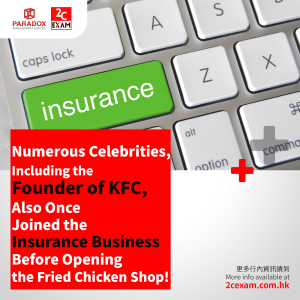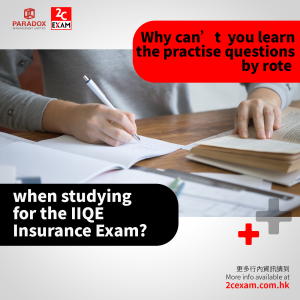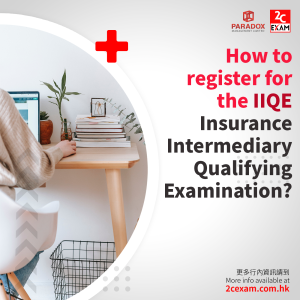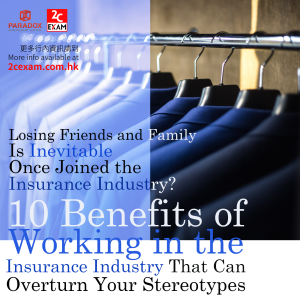Why do fund managers/asset management companies need to obtain a Type 4 license?
There is a type 1 regulated activity (Dealing in Securities) license holder who has many years of experience. This person has passed the Paper 6 of the Licensing Examination for Securities and Futures Intermediaries (HKSI LE). Can he become the RO responsible for Type 1 regulated activities (Dealing in Securities) and Type 9 regulated activities (Asset Management)?
This question can be divided into two subsidiary questions
- Can he become a Type 1 regulated activities (Dealing in securities) RO?
- Can he become a Type 9 regulated activities (Asset Management) RO?
First, to become a responsible officer for type 1 and type 9 regulated activities, you must meet the requirements of the SFC Guidelines on Competence. According to the requirements of the SFC Guidelines on Competence, as long as candidates meet the four types of requirements, along with other requirements, one then can apply to become a responsible officer.
- Education/Industry Qualification
- Industry experience
- Management experience
- Regulatory knowledge
Education/Industry Qualifications:
Like the representatives, since this person has many years of experience, he must meet the relevant requirements.
Industry experience:
Candidates must have 3 years of relevant industry experience within 6 years before the date of application, as long as the person has 3 years of relevant industry experience in the financial industry, he/she will be able to meet the requirement. When considering whether the applicant applying to become a Responsible Officer meets the experience requirements, the SFC (Securities and Futures Commission) issued a circular on clarifying the competency requirements related to existing licensees who intend to provide asset management services, stating that the SFC will take into account the person’s accumulated work experience in the financial industry. In addition to direct securities trading experience and asset management experience, other industry experience (such as research, private equity and proprietary trading) will also be recognized as relevant experience. It should be noted that so-called industry experience does not necessarily refer to the license record in Hong Kong, accumulated experience of the license applicant in other countries or regions can also be calculated.
Management Experience:
Applicants who wants to be licensed as Responsible Officers also need to have at least 2 years of proven management skills and experience. These management skills and experience refer to the experience of leading subordinates. Generally speaking, managing more than one subordinate is already considered management experience
Regulatory knowledge:
The so-called regulatory knowledge is measured by the results of relevant qualification examinations. If you want to engage in Type 9 regulated activities (Asset Management), you need to take the Licensing Examination (HKSI LE) Paper 6.If you want to engage in Type 1 regulated activities ( Dealing with Securities ) or Type 4 regulated activity (Advising on Securities) you are required to take the Licensing Examination (HKSI LE) Paper 2.
Why do fund managers/asset management companies need to obtain a Type 4 regulated activity license?
Why companies engaged in asset management generally hold Type 4 regulated activity licenses at the same time are mainly due to tax and legal issues. Many companies will set up funds or other legal entities overseas to manage assets.The fund itself does not need a license, but the fund manager needs a license, and if you manage funds or assets in Hong Kong, you need to obtain an SFC asset management license. Since if assets are managed in Hong Kong, asset management companies/fund managers who charge management fees and performance fees from asset management activities need to pay profits tax to the Hong Kong government. In order to avoid paying profits tax, many companies will set up asset management companies in the Cayman Island or other overseas regions to avoid paying large amounts of profit tax. However, many asset management companies hope to operate in Hong Kong to obtain more market information and investment opportunities.The best way to do this is to set up fund managers/asset management companies in both Hong Kong and the Cayman Islands. With that said, the fund manager in Hong Kong can first entrust the Cayman Islands fund manager/asset management company to manage the fund, and then the Hong Kong fund manager/asset management company will “provide investment advice and introduces investment opportunities” to the Cayman Islands company; in this way, less profit tax will be required, whilst ensuring the appropriate exposure to investment opportunities in Hong Kong.
Since Hong Kong asset management companies/fund managers only provide advice and introduce investment opportunities to other fund managers instead of directly trade and manage assets, nor do they have access to clients’ assets, these Hong Kong asset management companies/fund managers only need to get the Type 1 regulated activity (Dealing with Securities) license and Type 4 regulated activity (advising on securities) license instead of Type 9 regulated activity (asset management) license.
How can we help?
2CExam provides HKSI LE, IIQE, EAQE and SQE related exam preparation materials. We sell mock question banks for IIQE Papers 1, 2, 3, 5 and MPFE in Chinese and English; and bibles for IIQE Papers 1, 2, 3, MPFE in Chinese. We also offer 1 on 1 tutorial services. Besides, we have also made free tutorial videos for IIQE Papers 1, 2, 3 and MPFE and posted on public channels such as Youtube/ Bilibili/ Tencent/ Iqiyi. 2CExam has been an exam training expert for years. Should you need any help please visit www.2cexam.com or contact us through:
Phone +852 2110 9644 Email: [email protected] Wechat: hk2cexam WhatsApp: +852 9347 2064
Please support us by leaving comments and likes if you think this article helps you!
You can scan or click on the QR codes to visit our social media.
Latest Article
Categories
過往文章
Contact US
-
Phone:
+852 2110 9644
-
Email:
-
WhatsApp
+852 9347 2064
-
WeChat
hk2cexam
Interesting Articles
10 Pros and Cons of Using the HKSI Official Study Notes
The HKSI LE study note has long been infamous amongst candidates. Its disadvantages include Too many words, too many typos, it takes a lot of time to read A lot of data will not actually appear in the exam The text is long, difficult to understand and dull The wording is vague and ambiguous. Some…
Numerous Celebrities, Including the Founder of KFC, Also Once Joined the Insurance Business Before Opening the Fried Chicken Shop!
Many well-known celebrities have worked in the insurance industry in their careers. Jack Ma, Asia’s richest man and chairman of the Alibaba Group, once said: “The mission of insurance is to give people a sense of security. Our lives are full of various risks and accidents, and insurance is to make people feel safe.” Let’s…
Why can’t you learn the practise questions by rote when studying for the IIQE Insurance Exam?
Students who have taken/ who are going to take the IIQE should know the study note is a several-hundred pages, paragraph form booklet illustrating the exam coverage. Not to mention the length of the text, the expression of concepts requires readers’ intense concentration. So some candidates think that doing only the practise questions should be…
Why can’t you learn the practise questions by rote when studying for the HKSI Licensing Examination (LE)?
Students who have taken/ who are going to take the HKSI LE should know the HKSI study note is a several-hundred pages, paragraph form booklet illustrating the exam coverage. Not to mention the length of the text, the expression of concepts requires readers’ intense concentration. So some candidates think that doing only the practise questions…
How to register for the IIQE Insurance Intermediary Qualifying Examination?
The IIQE exam should be registered at PEAK instead of the Insurance Regulatory Bureau. The IIQE exam places are quite sought-after. If students have an urgent need to take the exam, students should decide to register as soon as possible. The test period will be issued on a day between the 12th to 17th of…
How to register for the HKSI LE Securities and Futures Practitioner?
The HKSI LE exam must be registered at HKSI, but not the SFC. There are two methods for registration. The most popular one is online registration, followed by in-person registration. How to register for HKSI exam Register online: 1. To register for the exam, you must first register as a member of HKSI 2. Click…
Losing Friends and Family Is Inevitable Once Joined the Insurance Industry? 10 Benefits of Working in The Insurance Industry That Can Overturn Your Stereotypes
Must people in the insurance industry lose their friends and family? NO! It is not that you won’t have friends when you join the insurance industry. In fact, it depends on whether you use the correct method to sell. When you only care about commissions and don’t care about the needs of your customers, selling…
What kind of jobs can I get after I pass the IIQE Hong Kong Insurance Exam?
After passing the IIQE (Insurance Intermediary Qualifying Examination) in Hong Kong, students can start looking for jobs. What job options are there? Bank Relationship Manager (RM) / General Banking Officer (GBO) / Personal Banking Officer / Assistant Relationship Manager (ARM) Some sales positions in the bank, including Relationship Manager (RM) and their assistant – Assistant…
What job opportunities can I get in Hong Kong after passing the HKSI LE securities exam?
First, I would like to clarify that some people do not take the HKSI Licensing Examination (also known as LE exam) to find a job, but just to learn more about the financial/ securities market and equip themselves with the necessary knowledge in a compact and more organised way. This article will not cover information…
10 Benefits of Working in the Securities Industry Which Can Bring You a Whole New Perspective
Is there an insufficient supply of positions in the securities industry? There are contradictory opinions on the internet. Some say that the financial industry is in demand for talents; others say that the financial industry has burst, and there are too many monks with only a little porridge. From my experience in the recruitment industry…









